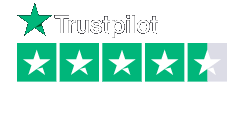Sales qualified lead to sale conversion rate. What does it mean?
In short, it’s the percentage of SQL’s that convert into customers, easy right?
If you’re not sure what a Sales Qualified Lead is, you can read all about what it is and how you get to this stage in our blog ‘A simple guide to the stages of lead qualification.’
So, how is it calculated?
To work out your SQL to sale conversion rate you will need:
-
Choose the time period you would like to do the calculation for
-
The amount of sales within that time
-
The amount of SQL’s acquired in that that time
Once you have these, all you need to do is divide the number of sales by the number of SQL’s, times this answer by 100 to get your percentage and there you have it.
Let's do an example.
If you have 100 SQL’s and 20 sales, 20 divided by 100 is 0.2, times 100 is 20 so your SQL to sale conversion rate is 20%.
Now don’t be worried if your sale conversion rate isn’t very high, the Aberdeen Group found that only around 33% of SQL’s turn into opportunities and Marketo found that only 22% of SQL’s develop into customers.
But there's always room for improvement…
How can I increase my sales conversion rate?
There are many factor that can lower or enhance your sales conversion rate:
Nurture your leads
One of the main faults for most companies is that they’re not nurturing their contacts properly and following the buyer's journey. If you try to sell to someone before they’re ready, the higher chance that you’ll lose that lead.
This may take longer than desirable but proven to be worth it in the long run.
Be persistent
You should never just try once.
Most companies will try with a lead only once or twice, mostly due to the high amount of leads they’re generating and they don’t have enough time or they’ve simply given up. According to marketingwizdom.com 80% of all significant sales occur after a minimum of five follow ups. Your lead showed interest in you for a reason, just because they haven't went all in upon first contact doesn't mean their not still interested.
Be aware of your timing
How long does it take you to first reply to a lead?
Research from Conversica shows that the top performing companies contact new leads within 13 minutes. There is no better time than the present. And who can fault getting in contact while your company is still fresh in their memory, they contacted you because they need you now, so act fast!
Be personal
You’ve heard us say it once, you’ve heard us say it twice, maybe even one hundred times!
Being personal and helpful is so incredibly important in showing your lead that you value them. Listen to your lead, work with their behaviors and you’ll be able to provide the best service to them possible.










